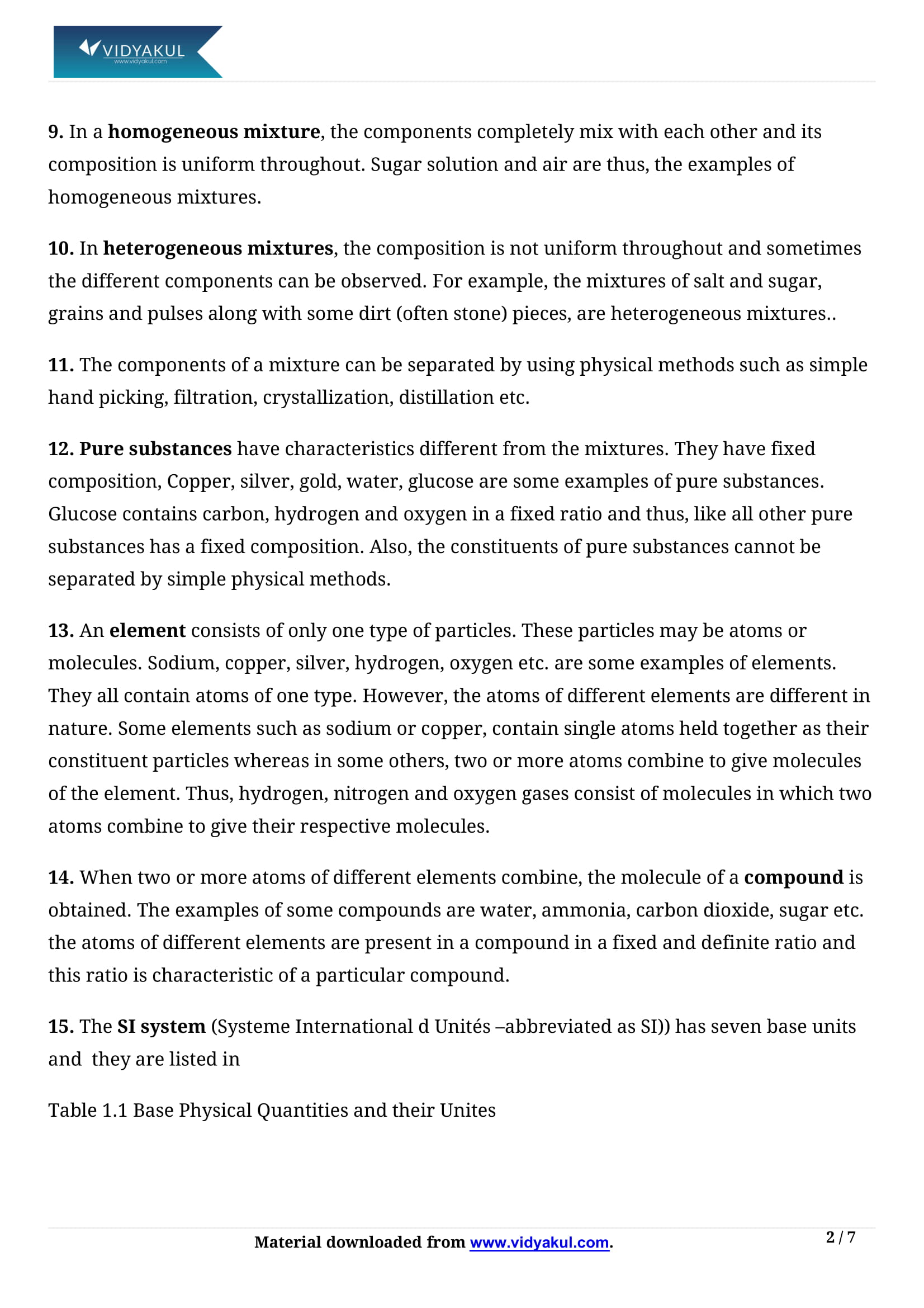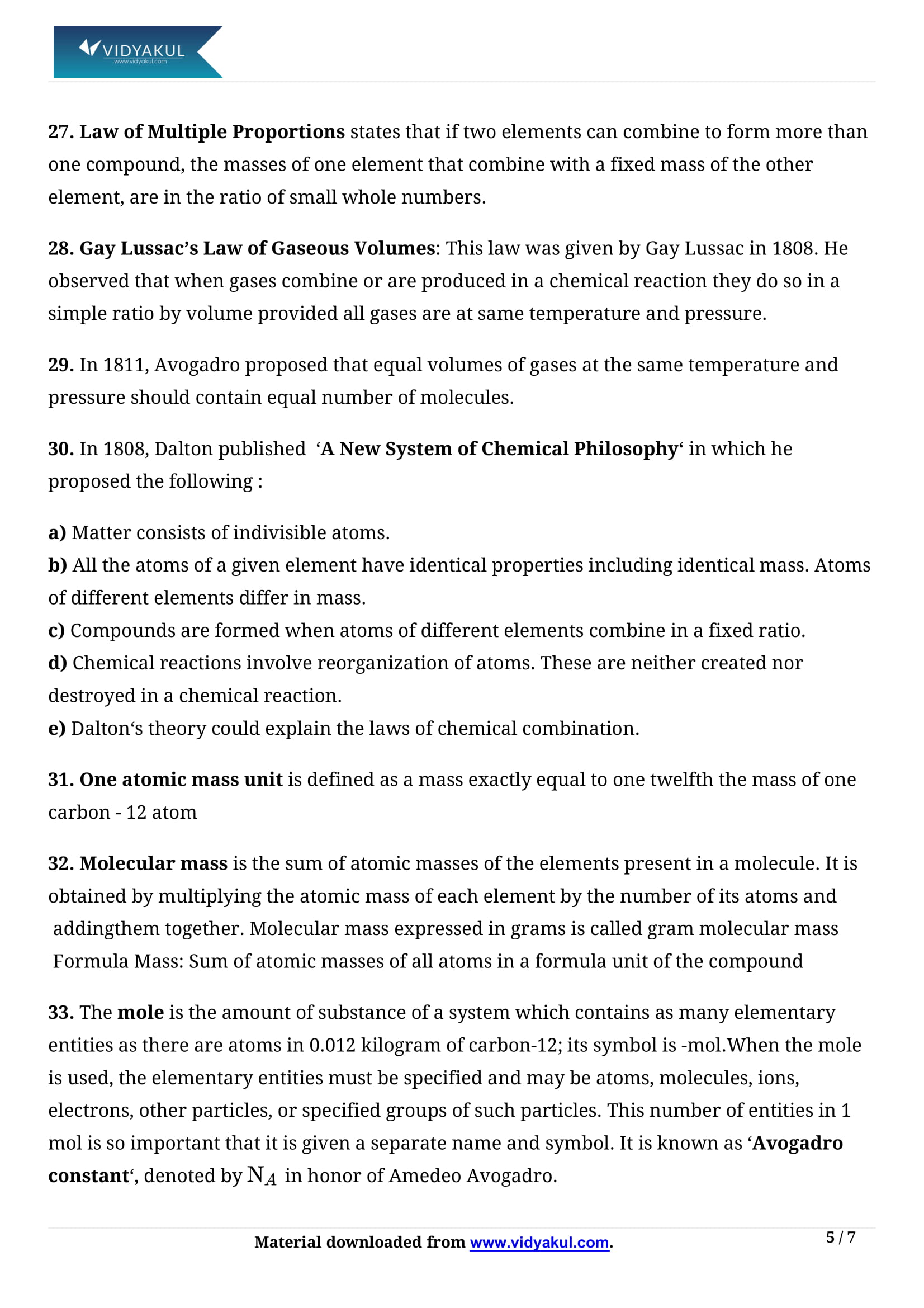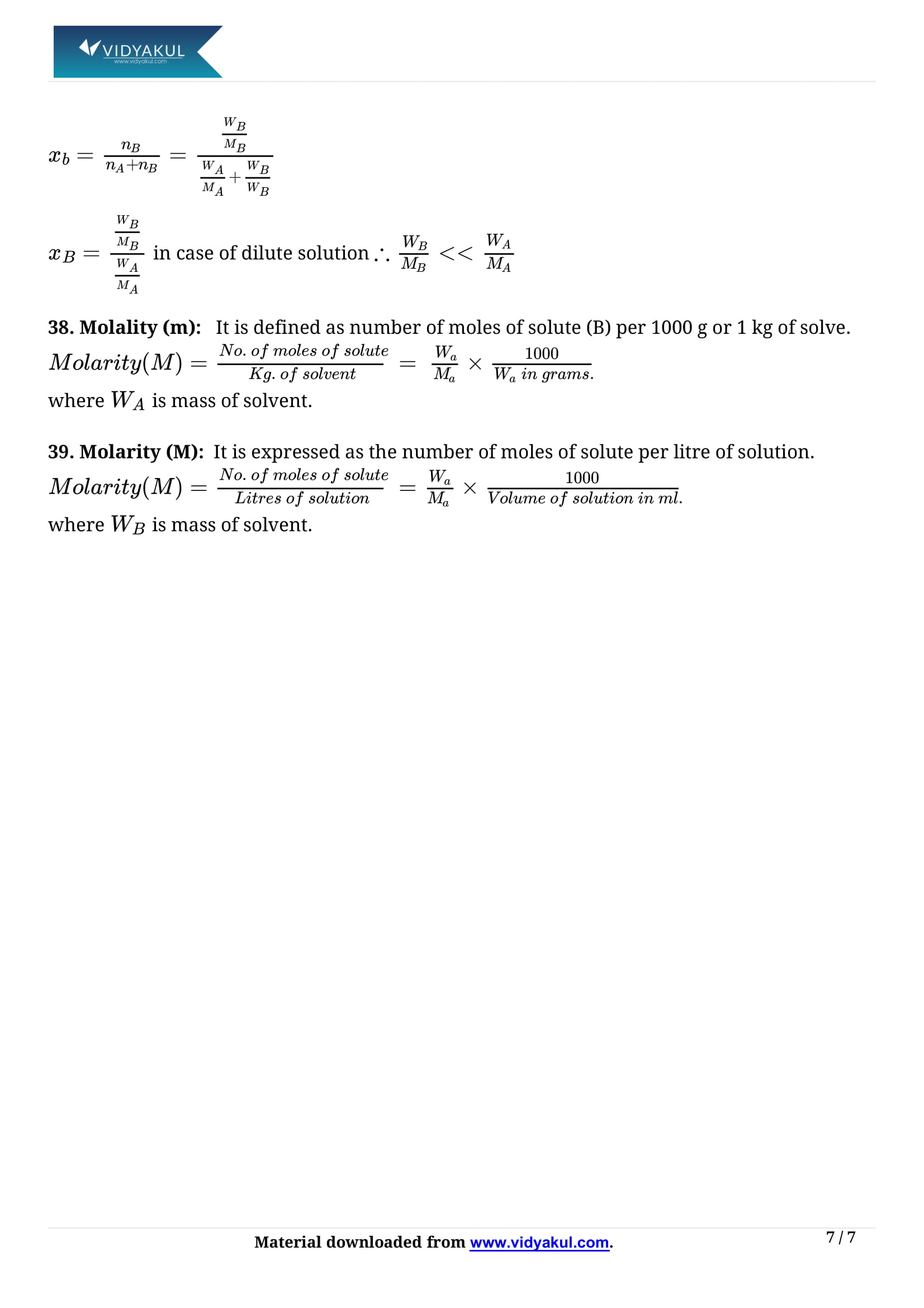Some Basic Concepts of Chemistry Class 11 Notes

Chapter 1 Some Basic Concepts of Chemistry
To help Year 11 students easily solve the text exercises and better understand concepts, Vidyakul has provided free Year 11 NCERT Chemistry notes prepared by experienced scientists following the latest guidelines in this article. These notes are available as free PDF downloads from Vidyakul. The NCERT notes for Class 11 Chemistry Chapter 1 provided on this page provides a step-by-step explanation to help students improve their problem-solving skills. Students can also visit Vidyakul to improve their exam preparation by practicing for free on over 1,495 questions from 80 different books. Read on to find the NCERT notes for Class 11 Chemistry Chapter 1.
CBSE 11th CHEMISTRY CH -1
Points to Remember
We have provided some important points that are covered in NCERT Class 11 Chemistry Chapter 1 to help students in their exam preparations. Refer to the list below:
In chemical classification, the matter is classified as mixtures, compounds and elements.
A homogeneous mixture has uniform composition and properties throughout while a heterogeneous mixture’s composition and properties are not uniform throughout.
The law of conservation of mass states that the total mass of all the products in a chemical reaction is the same as that of all the reactants present before the reaction.
The law of definite proportions states that a chemical compound is always made up of the same elements combined together in a fixed proportion by mass.
The law of multiple proportions states that when two elements combine to form two or more compounds, then masses of one of the elements which combine with a fixed mass of the other bear a simple ratio to one another.
The Gay-Lussac’s law of combining volumes states that volume of gaseous reactants and products bear a simple ratio to one another when measured under identical conditions of temperature and pressure.
Avogadro’s law states that equal volumes of all gases under similar conditions of temperature and pressure contain equal numbers of molecules.
Students can visit Vidyakul to get free access to all the important points for NCERT Class 11 Chemistry Chapter 1 Some Basic Concepts of Chemistry.
Topics and Sub-Topics
Chemistry is very important because it covers all areas of life. Chemists study the properties and structure of matter and the changes it undergoes. All substances include substances that can be in three states: solid, liquid or gas. In this chapter, students learn about the properties of substances and the chemical laws of their combinations. This chapter helps students build a solid foundation for learning chemistry. This will help students learn about atomic and molecular masses as well as moth concepts, chemical reactions, and molecular formulas.
Therefore, the exercises included in this chapter will help students better understand the concepts. Students will be introduced to the law of conservation of mass, the law of specific proportions, the law of multiple ratios, the International System of Units, weights and measures, and weight. Weight from an inspection point of view.
Read the entire chapter carefully before answering the questions.
Students can also refer to the table below to check all the important topics covered in NCERT Class 11 Chemistry Chapter 1:
Frequently Asked Questions
How to make the subject Chemistry easy for children?
Chemistry involves many equations and thus conceptual teaching can help students develop interest towards this subject.
What is matter?
Anything has occupies space and has mass can be defined as matter in Chemistry.
Should a student be good in Maths to solve the CBSE Class 11 Chemistry easily?
Chemistry involves equations and also problems. Basic Maths skills are required to score good marks in Chemistry.
Practice Questions
Define mass and write its SI unit.
Calculate the number of atoms in 52 moles of Ar and 52 g of He.
What is the mass percent of elements present in Na2SO4
What is the difference between 0.50 mol Na2CO3 and 0.50 M Na2CO3
In chemical classification, the matter is classified as mixtures, compounds and elements.
A homogeneous mixture has uniform composition and properties throughout while a heterogeneous mixture’s composition and properties are not uniform throughout.
The law of conservation of mass states that the total mass of all the products in a chemical reaction is the same as that of all the reactants present before the reaction.
The law of definite proportions states that a chemical compound is always made up of the same elements combined together in a fixed proportion by mass.
The law of multiple proportions states that when two elements combine to form two or more compounds, then masses of one of the elements which combine with a fixed mass of the other bear a simple ratio to one another.
The Gay-Lussac’s law of combining volumes states that volume of gaseous reactants and products bear a simple ratio to one another when measured under identical conditions of temperature and pressure.
Avogadro’s law states that equal volumes of all gases under similar conditions of temperature and pressure contain equal numbers of molecules.
How to make the subject Chemistry easy for children?
Chemistry involves many equations and thus conceptual teaching can help students develop interest towards this subject.
What is matter?
Anything has occupies space and has mass can be defined as matter in Chemistry.
Should a student be good in Maths to solve the CBSE Class 11 Chemistry easily?
Chemistry involves equations and also problems. Basic Maths skills are required to score good marks in Chemistry.
Define mass and write its SI unit.
Calculate the number of atoms in 52 moles of Ar and 52 g of He.
What is the mass percent of elements present in Na2SO4
What is the difference between 0.50 mol Na2CO3 and 0.50 M Na2CO3
Learn more about it in Some Basic Concepts of Chemistry Class 11 Notes pdf.
Download this solution for FREE Download this PDF
Download Vidyakul App for more Important notes, PDF's and Free video lectures.










